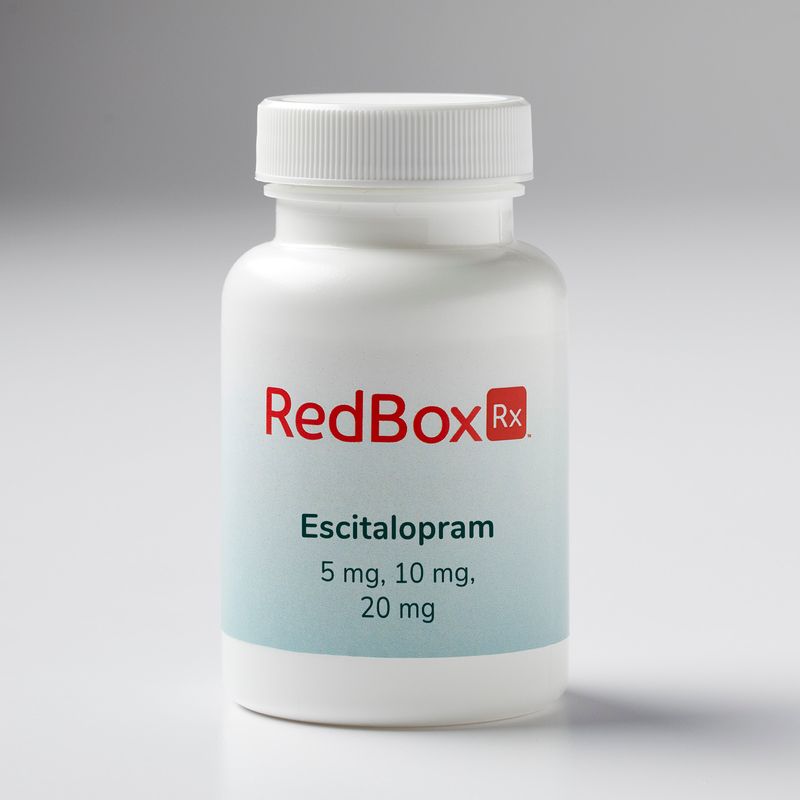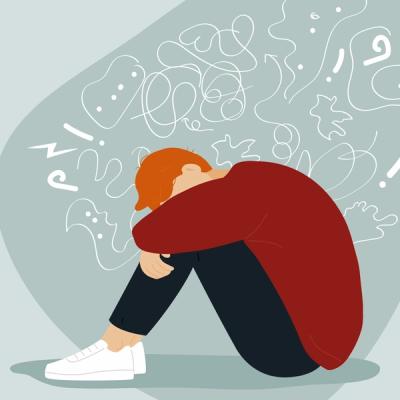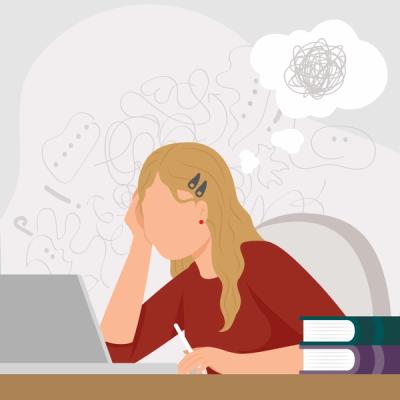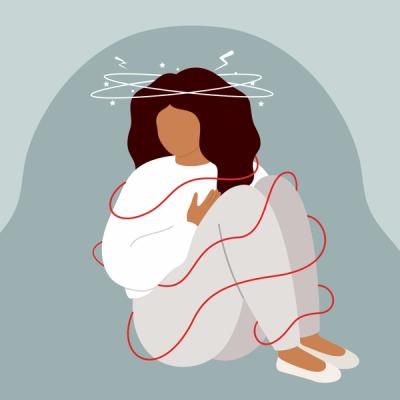Escitalopram (Generic Lexapro) FAQs
-
Escitalopram is used to treat depression in adults. Escitalopram is also used to treat generalized anxiety disorder (GAD; excessive worry and tension that disrupts daily life and lasts for 6 months or longer) in adults. Escitalopram is in a class of antidepressants called selective serotonin reuptake inhibitors (SSRIs). It works by increasing the amount of serotonin, a natural substance in the brain that helps maintain mental balance.
-
RedBox Rx prescribes escitalopram in dosages of 5 mg, 10 mg, and 20 mg. Our U.S. licensed medical professionals can help determine the right dosing of escitalopram, if prescribed. Start an online consult for anxiety and depression to discuss your options.
-
Escitalopram is a selective serotonin reuptake inhibitor (SSRI) and works by increasing levels of serotonin in the brain to maintain mental balance.
-
Escitalopram comes as a tablet and a solution (liquid) to take by mouth. It is usually taken once a day with or without food. To help you remember to take escitalopram, take it at around the same time every day, in the morning or in the evening. Follow the directions on your prescription label carefully, and ask your doctor or pharmacist to explain any part you do not understand. Take escitalopram exactly as directed. Do not take more or less of it or take it more often than prescribed by your doctor.
Your doctor may start you on a low dose of escitalopram and increase your dose after 1 week.
It may take 1 to 4 weeks or longer before you feel the full benefit of escitalopram. Continue to take escitalopram even if you feel well. Do not stop taking escitalopram without talking to your doctor. If you suddenly stop taking escitalopram, you may experience withdrawal symptoms such as mood changes, irritability, agitation, nausea, dizziness, burning, numbness, or tingling in the hands or feet, anxiety, confusion, headache, sweating, tiredness, and difficulty falling asleep or staying asleep. Your doctor will probably decrease your dose gradually.
-
It can take one to four weeks to feel the full effects of escitalopram.
-
Before taking escitalopram,
tell your doctor or pharmacist if you are allergic to escitalopram, citalopram (Celexa), any other medications, or any of the ingredients in the tablets or solution. Ask your pharmacist or check the Medication Guide for a list of the ingredients.
tell your doctor if you are taking pimozide (Orap) or a monoamine oxidase (MAO) inhibitor such as isocarboxazid (Marplan), phenelzine (Nardil), selegiline (Emsam, Zelapar), and tranylcypromine (Parnate), or if you have stopped taking an MAO inhibitor within the past 14 days. Your doctor will probably tell you not to take escitalopram. If you stop taking escitalopram, you should wait at least 14 days before you start to take an MAO inhibitor.
you should know that escitalopram is very similar to another SSRI, citalopram (Celexa). You should not take these two medications together.
tell your doctor or pharmacist what prescription and nonprescription medications and vitamins you are taking or plan to take. Be sure to mention any of the following: anticoagulants ('blood thinners') such as warfarin (Coumadin); amphetamines such as amphetamine (in Adderall, in Mydayis), dextroamphetamine (Dexedrine, in Adderall), and methamphetamine (Desoxyn); aspirin and other nonsteroidal anti-inflammatory drugs (NSAIDs) such as ibuprofen (Advil, Motrin) and naproxen (Aleve, Naprosyn); buspirone; carbamazepine (Tegretol); cimetidine (Tagamet); diuretics ('water pills'); ketoconazole (Sporanox); lithium (Lithobid); linezolid (Zyvox); medications for anxiety, mental illness, or seizures; medications for migraine headaches such as almotriptan, eletriptan (Relpax), frovatriptan (Frova), naratriptan (Amerge), rizatriptan (Maxalt), sumatriptan (Imitrex, Tosymra, in Treximet), and zolmitriptan (Zomig); metoprolol (Lopressor, Toprol XL); other selective serotonin re-uptake inhibitors (SSRI) or serotonin–norepinephrine reuptake inhibitors (SNRI) medications; sedatives; sleeping pills; tranquilizers; and tricyclic antidepressants such as amitriptyline, amoxapine, clomipramine (Anafranil), desipramine (Norpramin), doxepin (Zonalon), imipramine (Tofranil), nortriptyline (Pamelor), protriptyline (Vivactil), and trimipramine. Your doctor may need to change the doses of your medications or monitor you carefully for side effects.
tell your doctor what nutritional supplements and herbal products you are taking, especially products containing St. John's wort or tryptophan.
tell your doctor if you have recently had a heart attack and if you have or have ever had high blood pressure; a stroke; bleeding problems; seizures; or liver, kidney, or heart disease.
tell your doctor if you are pregnant, especially if you are in the last few months of your pregnancy, or if you plan to become pregnant or are breast-feeding. If you become pregnant while taking escitalopram, call your doctor. Escitalopram may cause problems in newborns following delivery if it is taken during the last months of pregnancy.
if you are having surgery, including dental surgery, tell the doctor or dentist that you are taking escitalopram.
you should know that escitalopram may make you drowsy. Do not drive a car or operate machinery until you know how this medication affects you.
remember that alcohol can add to the drowsiness caused by this medication.
you should know that escitalopram may cause angle-closure glaucoma (a condition where the fluid is suddenly blocked and unable to flow out of the eye causing a quick, severe increase in eye pressure which may lead to a loss of vision). Talk to your doctor about having an eye examination before you start taking this medication. If you have nausea, eye pain, changes in vision, such as seeing colored rings around lights, and swelling or redness in or around the eye, call your doctor or get emergency medical treatment right away.
-
Unless your doctor tells you otherwise, continue your normal diet.
-
Take the missed dose as soon as you remember it. However, if it is almost time for the next dose, skip the missed dose and continue your regular dosing schedule. Do not take a double dose to make up for a missed one.
-
Escitalopram may cause side effects. Tell your doctor if any of these symptoms are severe or do not go away:
nausea
diarrhea
constipation
changes in sex drive or ability
drowsiness
increased sweating
dizziness
heartburn
stomach pain
excessive tiredness
dry mouth
decreased appetite
weight loss
flu-like symptoms
runny nose
sneezing
Some side effects can be serious. If you experience either of the following symptoms or those listed in the IMPORTANT WARNING or SPECIAL PRECAUTIONS sections, call your doctor immediately:
unusual excitement
seeing things or hearing voices that do not exist (hallucinating)
rash
hives or blisters
itching
fever
joint pain
swelling of the face, throat, tongue, lips, or eyes
fever, sweating, confusion, fast or irregular heartbeat, severe muscle stiffness or twitching, agitation, hallucinations, loss of coordination, nausea, vomiting, or diarrhea
abnormal bleeding or bruising
headache
unsteadiness
problems with thinking, concentration, or memory
seizures
Escitalopram may cause other side effects. Call your doctor if you have any unusual problems while taking this medication.
If you experience a serious side effect, you or your doctor may send a report to the Food and Drug Administration's (FDA) MedWatch Adverse Event Reporting program online (http://www.fda.gov/Safety/MedWatch) or by phone (1-800-332-1088).
-
Stopping the use of escitalopram suddenly may cause withdrawal symptoms including anxiety, nausea, dizziness, headache, pain, burning, numbness, tingling, difficulty sleeping, sweating, and nightmares. Please consult a medical professional before stopping escitalopram.
-
Keep this medication in the container it came in, tightly closed, and out of reach of children. Store it at room temperature and away from excess heat and moisture (not in the bathroom).
Unneeded medications should be disposed of in special ways to ensure that pets, children, and other people cannot consume them. However, you should not flush this medication down the toilet. Instead, the best way to dispose of your medication is through a medicine take-back program. Talk to your pharmacist or contact your local garbage/recycling department to learn about take-back programs in your community. See the FDA's Safe Disposal of Medicines website (http://goo.gl/c4Rm4p) for more information if you do not have access to a take-back program.
It is important to keep all medication out of sight and reach of children as many containers (such as weekly pill minders and those for eye drops, creams, patches, and inhalers) are not child-resistant and young children can open them easily. To protect young children from poisoning, always lock safety caps and immediately place the medication in a safe location - one that is up and away and out of their sight and reach. http://www.upandaway.org
-
In case of overdose, call the poison control helpline at 1-800-222-1222. Information is also available online at https://www.poisonhelp.org/help. If the victim has collapsed, had a seizure, has trouble breathing, or can't be awakened, immediately call emergency services at 911.
Symptoms of overdose may include:
dizziness
nausea
vomiting
drowsiness
fast or pounding heartbeat
seizures
coma (loss of consciousness for a period of time)
-
Keep all appointments with your doctor.
Before having any laboratory test (especially those that involve methylene blue), tell your doctor and the laboratory personnel that you are taking escitalopram.
Do not let anyone else take your medication. Ask your pharmacist any questions you have about refilling your prescription.
It is important for you to keep a written list of all of the prescription and nonprescription (over-the-counter) medicines you are taking, as well as any products such as vitamins, minerals, or other dietary supplements. You should bring this list with you each time you visit a doctor or if you are admitted to a hospital. It is also important information to carry with you in case of emergencies.
-
Lexapro®
-
Escitalopram is the generic version of Lexapro®.
-
Escitalopram costs $25 a month with RedBox Rx, no insurance required and no membership fees. We’re able to offer low prices because we purchase escitalopram directly from manufacturers and ship from our pharmacy in Iowa.
Our online consultation for anxiety & depression costs only $35.
-
Escitalopram requires a prescription. Start an online consult for anxiety and depression to meet with a U.S. licensed medical professional to see if escitalopram is a good fit for you.
-
We offer a variety of prescription medication options for anxiety and depression including:
-
We offer a variety of prescription medication options for depression including:
-
A small number of young adults (up to 24 years of age) who took antidepressants ('mood elevators') such as escitalopram during clinical studies became suicidal (thinking about harming or killing oneself or planning or trying to do so). Young adults who take antidepressants to treat depression or other mental illnesses may be more likely to become suicidal than young adults who do not take antidepressants to treat these conditions. However, experts are not sure about how great this risk is and how much it should be considered in deciding whether a child or teenager should take an antidepressant.
You should know that your mental health may change in unexpected ways when you take escitalopram or other antidepressants even if you are an adult over 24 years of age. You may become suicidal, especially at the beginning of your treatment and any time that your dose is increased or decreased. You, your family, or your caregiver should call your doctor right away if you experience any of the following symptoms: new or worsening depression; thinking about harming or killing yourself, or planning or trying to do so; extreme worry; agitation; panic attacks; difficulty falling asleep or staying asleep; aggressive behavior; irritability; acting without thinking; severe restlessness; and frenzied abnormal excitement. Be sure that your family or caregiver knows which symptoms may be serious so they can call the doctor if you are unable to seek treatment on your own.
Your healthcare provider will want to see you often while you are taking escitalopram, especially at the beginning of your treatment. Be sure to keep all appointments for office visits with your doctor.
The doctor or pharmacist will give you the manufacturer's patient information sheet (Medication Guide) when you begin treatment with escitalopram. Read the information carefully and ask your doctor or pharmacist if you have any questions. You also can obtain the Medication Guide from the FDA website: http://www.fda.gov/Drugs/DrugSafety/ucm085729.htm.
No matter your age, before you take an antidepressant, you, your parent, or your caregiver should talk to your doctor about the risks and benefits of treating your condition with an antidepressant or with other treatments. You should also talk about the risks and benefits of not treating your condition. You should know that having depression or another mental illness greatly increases the risk that you will become suicidal. Tell your doctor if you or anyone in your family has or has ever had bipolar disorder (mood that changes from depressed to abnormally excited) or mania (frenzied, abnormally excited mood) or has thought about or attempted suicide. Talk to your doctor about your condition, symptoms, and personal and family medical history. You and your doctor will decide what type of treatment is right for you.

Affordable anxiety and depression treatment online.
Your mental health is important. If you’ve been feeling irritable, distracted, or overwhelmed lately, you’re not alone. We provide ongoing mental health support and prescription medication on your schedule.
- No membership or subscription fees.
- Low-cost telehealth consult with a licensed medical provider.
- Medications for $25 per month (with purchase of 3-month supply)
- Confidential, private and secure.
- Free standard shipping or expedited/overnight available.
Sorry, we’re closed for today. Our U.S. licensed medical providers are available daily 7 a.m. to 9 p.m. CST via live video visit. We look forward to serving you soon. Email us anytime at [email protected].
How RedBox Rx Works
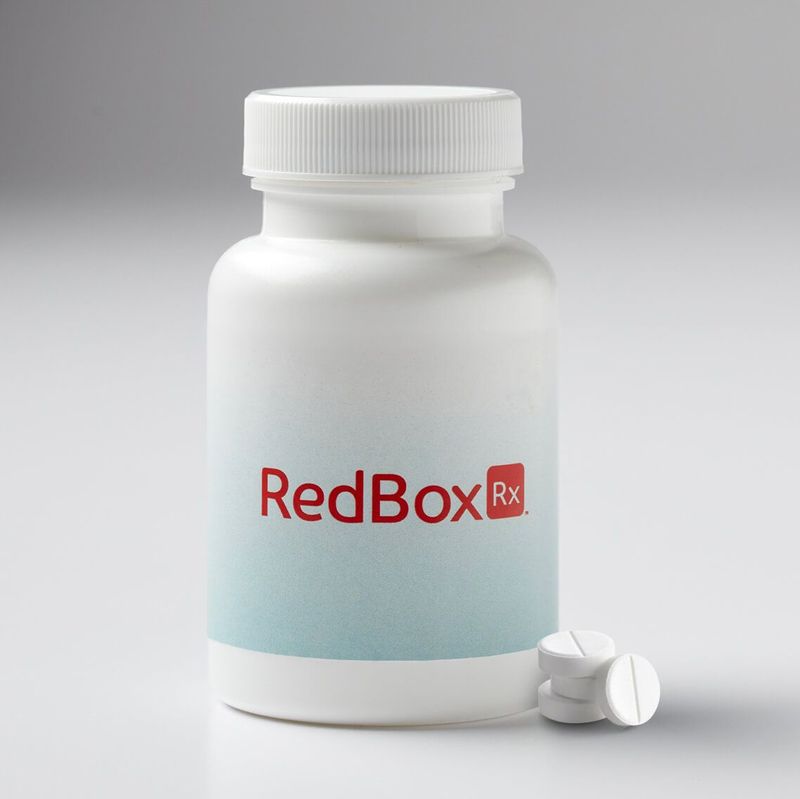
Get escitalopram prescribed online.
Take a 5-minute assessment, then schedule a 20-minute video consultation with one of our experienced, licensed medical providers to determine whether escitalopram is right for you.
Sorry, we’re closed for today. Our U.S. licensed medical providers are available daily 7 a.m. to 9 p.m. CST via live video visit. We look forward to serving you soon. Email us anytime at [email protected].

